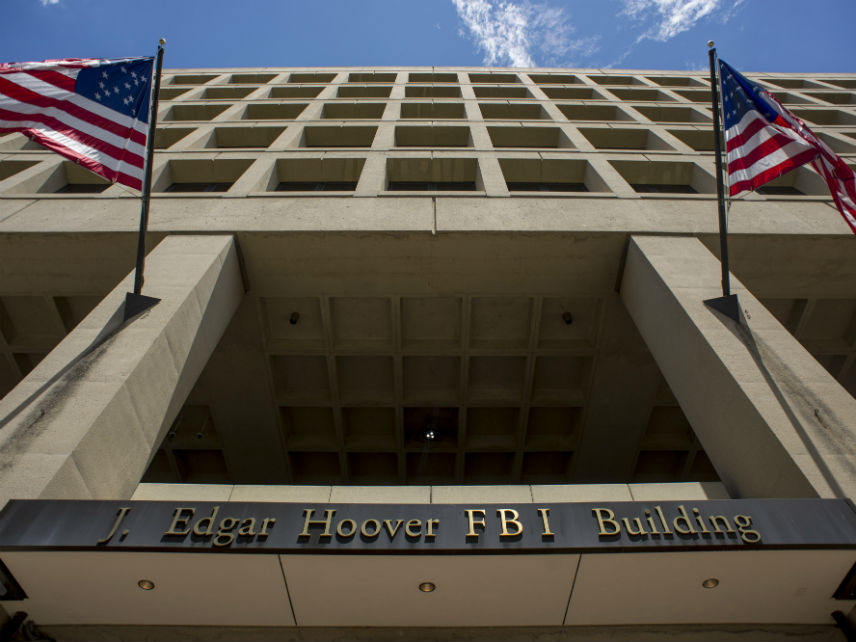Critical Data Is Missing From The FBI's Annual Crime Report And Researchers Want it Back
An organization of criminologists say key data missing from the FBI's annual crime report will make it harder to study murders and drug arrests.
Criminal justice researchers are alarmed at missing data from the FBI's latest annual crime report and say it will hamper efforts to study drug arrests and violent crime, two of the Trump administration's biggest priorities.

The new outlet FiveThirtyEight first reported in October that the FBI's annual Uniform Crime Reports (UCR) for 2016—the first year it was released under the Trump Administration—were missing many key fields from previous years. The report is the most comprehensive annual survey of crime in the U.S. and an invaluable tool for researchers and public policy experts.
In a letter to U.S. Attorney General Jeff Sessions and acting FBI Director Christopher Wray on Tuesday, the Crime & Justice Research Alliance, a Washington, D.C. organization representing roughly 5,000 criminologists, urged the Justice Department and FBI to re-issue the report with the old data fields intact.
"The unnecessary and surprising removal of the majority of the data tables does not reflect the FBI's stated commitment to meeting the needs of the users of these data," the group wrote. "Given the administration's public statements about addressing violent crime, victims' rights, the opioid epidemic and terrorism, it is unfortunate that the 2016 report removes key data about these topic areas."
According the organization, the removed data fields include such information as the relationship between homicide victims, their killers, and the circumstances of the crime. The removed fields, the group argues, will prevent researchers from gaining insight into family and intimate partner violence, as well as gang and drug-related homicides.
Also missing are data on arrests related to specific drug types, making it hard for researchers to track trends in law enforcement efforts to combat drugs such as heroin and opioids, a major focus of the Trump administration.
The Justice Department referred a request for comment to the FBI, which did not immediately respond.
This week, the White House announced it was appointing Jeffrey Anderson, a former political science professor at the U.S. Air Force Academy and fellow at the conservative Hudson Institute, to head the Bureau of Justice Statistics, the federal agency tasked with collecting and analyzing national crime data.
In May, five former directors of the BJS sent a letter to Sessions urging him to appoint someone to head the agency who had "scientific skills; experience with federal statistical agencies; familiarity with BJS and its products; visibility in the nation's statistical community."
Anderson has no relevant experience in criminal justice statistics, although the White House did note in its announcement that he "co-created the Anderson and Hester Computer Rankings, which were part of the BCS formula to determine college football's annual national championship matchup."
Editor's Note: As of February 29, 2024, commenting privileges on reason.com posts are limited to Reason Plus subscribers. Past commenters are grandfathered in for a temporary period. Subscribe here to preserve your ability to comment. Your Reason Plus subscription also gives you an ad-free version of reason.com, along with full access to the digital edition and archives of Reason magazine. We request that comments be civil and on-topic. We do not moderate or assume any responsibility for comments, which are owned by the readers who post them. Comments do not represent the views of reason.com or Reason Foundation. We reserve the right to delete any comment and ban commenters for any reason at any time. Comments may only be edited within 5 minutes of posting. Report abuses.
Please to post comments


The Justice Department referred a request for comment to the FBI...
...which then sent a heavily redacted response.
So for the Feds what is inconvenient about researchers accurately trending drug crimes and domestic violence?
Doesn't the FBI work for the Justice Department? Since when does this type of thing devolve downward? Did Comey somehow alter the basic functioning of the DOJ?
AND the Justice Department is delegating the runaround to the FBI.
he "co-created the Anderson and Hester Computer Rankings, which were part of the BCS formula to determine college football's annual national championship matchup."
For that alone, he should be sent to prison for life.